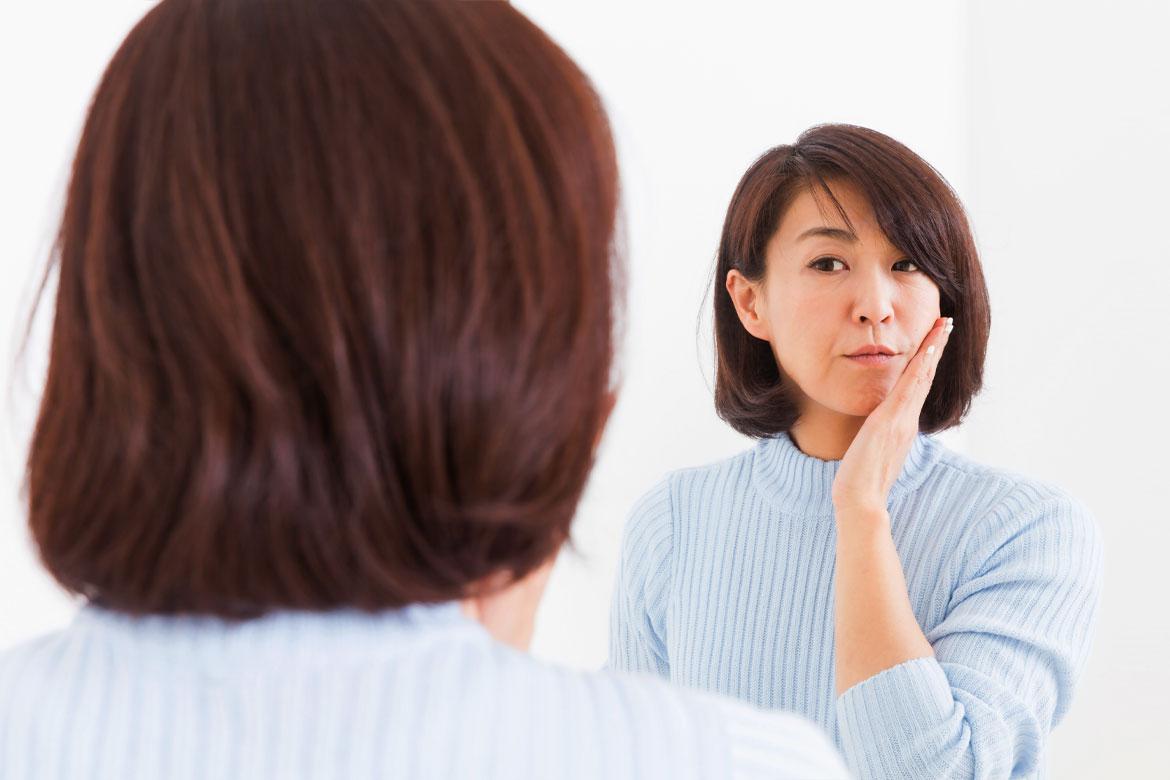
Menopause
Frequently asked questions
A: Menopause begins differently for every woman, depending on factors such as genetics, ethnicity, diet and lifestyle. While there are no proven ways to delay menopause, your gynaecologist will be able to recommend ways to help manage and treat your menopause symptoms when they occur.
A: Although ovarian cysts are less common after menopause, it is still possible to develop them.
A: Ovaries can shrink from 3 – 4cm to 0.5 – 1cm after menopause.
A: Due to decreasing hormone levels during menopause, it is possible for existing fibroids to shrink and even disappear. However, fibroids have also been known to develop during and after menopause.
A: Menopause occurs more as a series of changes and symptoms and does not happen suddenly overnight. Some women experience lighter or heavier bleeding, irregular periods, or more frequent periods during the perimenopausal stage.
A: No. Once you have reached menopause, your ovaries stop releasing eggs and you will no longer be able to get pregnant.
A: Menopause belly fat occurs because as your oestrogen levels drop, your body fat is redistributed from the hips, thighs and bum to your belly. Some ways to help lose menopause belly fat include:
- Avoiding excess calories such as sugar and alcohol
- Exercising more
- Reducing overall calorie intake
A: You can ease yourself into menopause better with the following preparation tips:
- Commit to taking better care of your health, mind and body for the long-term by exercising 2 – 3 times a week, eating a balanced diet and reducing stress factors to help manage the transition
- Familiarise yourself with menopause symptoms such as fatigue, mood swings, insomnia and hot flushes so that you are not caught off-guard
- Gather a support group to help you get through the ups and downs of menopause
- Increase your calcium intake to prevent menopause-related osteoporosis
A: Many women experience menopausal hair loss as hair begins to thin or grow more slowly with the lack of hormones. While there is no way to stop the process completely, some tips to help your body balance the hormonal changes including:
- Eating a diet rich in nutrients such as Vitamin C, Vitamin D, phytoestrogens and iron
- Exercising regularly to boost your mood and manage weight gain
- Lowering stress levels that could exacerbate hair loss
- Limiting hair styling techniques that could be harsh on your hair and scalp such as dyeing, perming and straightening
If suitable, your doctor may also recommend hormone replacement therapy as a possible treatment.
A: It is normal to experience heart palpitations during menopause, and sometimes in conjunction with hot flushes and restless nights. Some ways you can manage your menopause heart palpitations include:
- Avoiding consumption of stimulants such as caffeine, cigarettes and alcohol
- Practicing relaxation techniques such as mediation, yoga and breathing exercises
Heart palpitations are also a symptom of other conditions beside menopause, so speak to your doctor if you are unsure or concerned.
A: The general diet guidelines for women going through menopause are:
- Aim to take about 1,200 milligrams of calcium a day to help combat any menopause-related osteoporosis
- Consume enough iron of about 8 milligrams a day with a diet consisting of lean red meat, nuts, eggs, fish and green leafy vegetables
- Reduce intake of fat, sodium and sugar
- Stay well hydrated with at least 8 glass of water a day
A: During the perimenopause and menopause stage, your oestrogen and progesterone levels begin to drop. As oestrogen is what keeps your bones strong, a decline in oestrogen levels is one of the causes of osteoporosis development in menopausal women.
This coverage checker is brought to you by Health Insured, an online resource that helps you understand your health coverage in Singapore.
This page has been reviewed by our medical content reviewers.
Need help?
For enquiries, please call
+65 6250 0000 (Orchard) or +65 6898 6898 (Novena)
For appointment bookings, please WhatsApp
+65 8111 7777 (Orchard) or +65 8111 5777 (Novena)
 Brain & Spine Care
Brain & Spine Care



